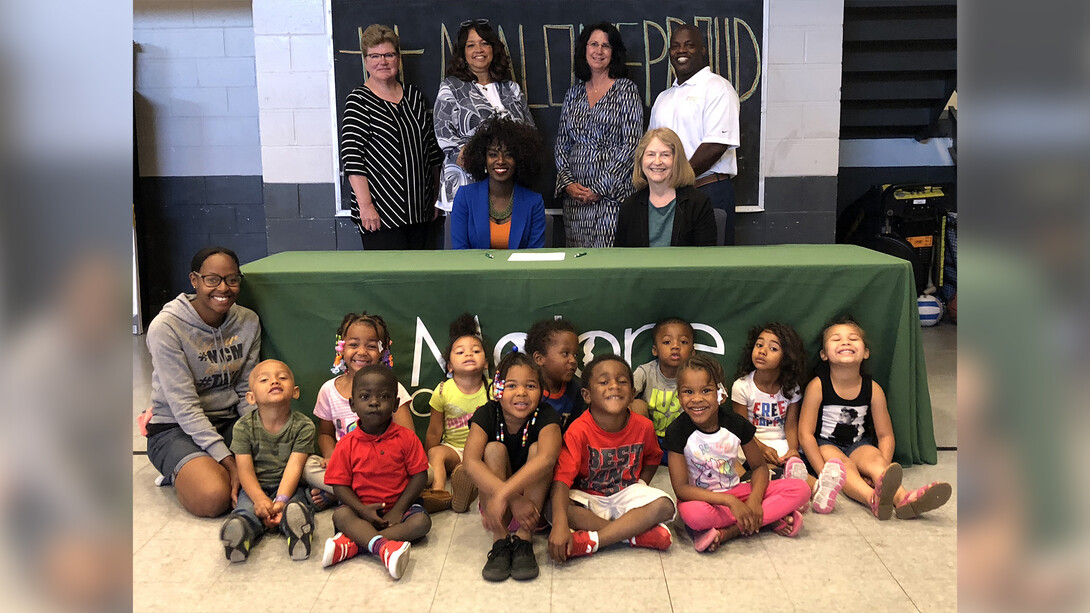
A new community partnership will strengthen collaborations between the University of Nebraska–Lincoln and the Clyde Malone Community Center.
The mutually beneficial partnership will benefit the Malone Center children and families while providing practical experiences for students in Nebraska’s College of Education and Human Sciences. The initial five-year agreement was signed May 6 by Beth Doll, interim dean of education and human sciences, and Kimberly Goins, executive director of the Malone Center.
“We are delighted that our students can walk across the street from campus, into the Malone Center, and have world-changing experiences as they provide needed services to children and families in Lincoln,” Doll said. “Our college prepares students for careers where they are going to make other people’s lives better. This is a unique opportunity for our students to walk that talk while they’re in training.”
Areas of collaboration will include teaching; research; curriculum development; training; and placement of interns, graduate assistants and student teachers.
The project started with activities between staff and children from the university’s Ruth Staples Child Development Laboratory and Malone’s Early Achievers Academy. Plans are also in place to have graduate students in the college’s marriage and family therapy program provide on-site family therapy services.
“We want to ensure that all families in Lincoln have access to quality education, access to additional social services, and access to people who really believe in them. That’s what we’re getting from the university in this partnership,” Goins said. “It’s ensuring that we can take care of our families and be on the forefront of educational opportunities. Our kids and families will be much better because of this partnership.”
Deb Mullen, associate dean of education and human sciences, is coordinating the partnership for the college.
“We’re not just neighbors, we’re partners, and we need to be good partners so our shared neighborhood can achieve all that’s possible,” Mullen said. “Children in the Malone community deserve the same opportunities as children in more affluent areas of Lincoln. These are talented kids, and we see their value. They can achieve so much if they’re just given the chance.”
The Malone Center supports underserved families through early childhood education, an out-of-school program, a leadership academy for high school students, a community learning center at Culler Middle School, a minority health program and an aging senior program to help seniors remain independent.
Education and human sciences leaders anticipate students and faculty across the college will participate in the partnership.







